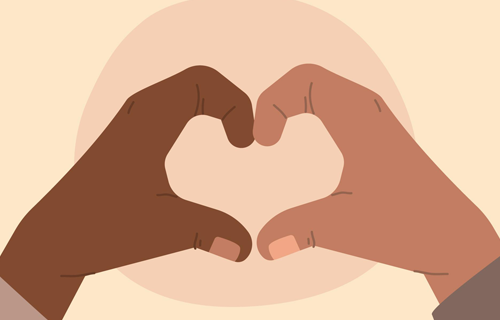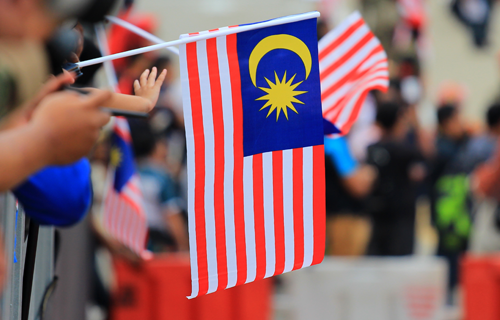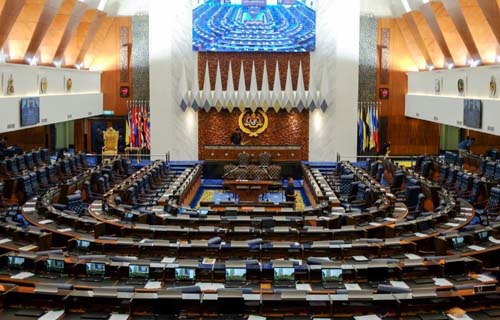Kulit-ology: Skin Colour and Discrimination

Written by Pravena Sreetharan, a member of Akar Umbi Kita, a programme for emerging advocates against racial discrimination by Architects of Diversity, Imagined Malaysia, IDEAS and the European Union. This article is published in conjunction with the International Day for the Elimination of Racial Discrimination.
Made up of the Malay word ‘kulit’ which translates to skin, and the suffix ‘-ology’ which refers to the study of something, kulit-ology loosely translates to the study of skin, or in this context, the study of skin colour or race. Implicitly synonymous with racial discrimination, kulit-ology is a colloquial term that was coined by Malaysian minority races to process and speak of racism in Malaysia.
Growing up, I constantly heard this word thrown around. Sometimes, it was said with an absurd comicality, discounting the pain of the discrimination we faced. Other times, it was used to wryly acknowledge the bleakness of our reality. This word was first introduced to me as a gentle consolation when I was seven and my classmate wiped her desk clean after my elbow touched it, muttering how dirty my brown skin was under her breath. I heard it many times after that: as weary warnings to not have high hopes when applying for opportunities or as feeble explanations for being treated badly for no apparent reason.
Racial discrimination is as familiar as an old friend, and yet, it brings none of the friendliness. Racism need not be only synonymous with violence. It wears many masks. Racism can also look like being written out of the narrative; a gradual silencing, in other words. Not only were we written out of the narrative, many resorted instead to a silent dissection of what it means to be a Malaysian Indian.
It is a seemingly simple question, isn’t it? With a hefty pat on the back, and a hearty chuckle to accompany it, most would cheerily and eagerly provide the answers on our behalf. They tell us we all celebrate Deepavali. They tell us that we must love curry. They tell us that they love Shah Rukh Khan in Kabhi Khushi Kabhi Gham, and ask us, “do you love Shah Rukh Khan too?” However, these stereotypes leave me more perplexed and exhausted. Is this what it means to be a Malaysian Indian? A series of stereotypes waiting to be donned? A series of sentences always ending in questions?
To be Malaysian Indian is to be a vessel of conflict; a lifelong grappling of identities both within and outside the self. Apart from its usual association with tension between either political personalities or celebrities, conflict also denotes a particular circumstance where it becomes difficult to choose between options, or a scenario in which opposing ideas or feelings exist. Ergo, what is the Malaysian Indian conflict, and how does racism impact our identity?
To preface my stance, I acknowledge that it would be inaccurate and dismissive to make a grand, sweeping statement about the collective experience of my fellow community members where identity as a Malaysian Indian is concerned. Identity is personal. It is influenced by a myriad of factors, ranging from the media we consume to the way we were raised.
Personally, being a fourth-generation Malaysian Tamil, the prejudice I faced had led me to feel a tremendous amount of solitude and shakiness in my identity. Perhaps I was already acquainted with this feeling from an early age, but I only discovered that there was a name for it when I was in college. This feeling — which sneakily followed me and my forefathers wherever we went — was called displacement.
Through years of suppressing my own true voice and trying to fit into an inauthentic mould, I had inadvertently lost sight of who I truly was. I found myself asking if I was Malaysian enough or Tamil enough, or if I was too Malaysian or too Tamil. However, I later realised that it was not a matter of being unable to strike the precise balance between being Malaysian and Indian. The problem was the prejudice against my community that birthed these harmful stereotypes and treatment towards us.
Police brutality, racial discrimination in workplaces and tenancy matters, quota systems — the list is, once again, endless. But what underpins all these cruel acts of prejudice is a carelessness adopted when approaching both Malaysian Indians and their experiences. For instance, consider the recent controversy surrounding yet another Indian-style advertisement put out by a top corporation that contained zero Indian talent or creatives in its making. Furthermore, racist slurs are carelessly and freely employed towards those in the community. This carelessness is further demonstrated in stereotyping Malaysian Indians to be racially and culturally homogenous by ignoring the nuances of the many vibrant Malaysian Indian ethnicities that have been part of Malaysia for decades and generations. Some barely know the difference between being Hindu, speaking Hindi, and being ethnically Indian. By extension, this stereotype of homogeneousness deems us not important enough to warrant care or respect. In other words, this carelessness employed in matters pertaining to Malaysian Indians is simply another avatar of prejudice.
As heart-breaking as these lived realities may be, the good thing about prejudice is that it is learned, and therefore, it can be unlearned. Prejudice is not innate and biological. It is manufactured and adopted, because of fear and wanting power. We can dismantle prejudice both on a systemic and personal basis, but that requires discourse. In Malaysia, we approach topics like race and religion with extreme caution because differences are viewed negatively. Although discourse on racial matters is greatly discouraged, Malaysia boasts diversity and harmony but as much as we can sing praises for our harmonious coexistence, we cannot deny the surging tension between the many multiracial and multireligious groups in Malaysia.
A product of political narratives, badly crafted institutional policies, and implicit bias, the Malaysian people are still divided when push comes to shove. Stereotypes start to make an appearance, and people start becoming hostile and cold; antithetical to the Malaysian identity that is warm, accepting, and kind. It is a disservice to our history to believe that this diverse Malaysian society is delicate. It is unrealistic to imagine living in a constant state of avoidance in pushing each other’s buttons. By sweeping the important, and the hard conversations under the carpet, we will remain stagnant as a society, making room for more people to be present but never seen. Let us not confuse stagnation with stability. Let us sing together and make it a choir. Let every voice be heard.
So, when someone asks me, someday, what it means to be a Malaysian Indian, I tell them it is about eating idlis with condensed milk. I tell them it is the thrill of chasing the silver chariot during Thaipusam. I will tell them it is about automatically dancing when you hear a beat. I will tell them, most importantly, it is about having the freedom to decide what being Malaysian Indian means to me.


